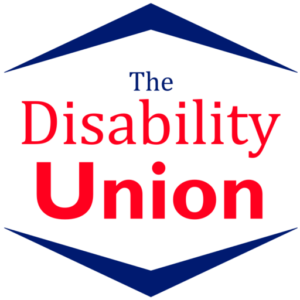
Businesses tend to have the wrong idea when it comes to hiring people with disabilities. They seem to hold on to this outdated notion that disabled people are just not able to work. They may be focusing on physical limitations, such as the inability to lift heavy boxes, or some other factor. But what they don’t seem to see are the many benefits of employing people with disabilities, and how they can even improve their business. In fact, according to a recent study by Accenture, hiring people with disabilities can have a positive overall impact on your business. This article will cover a few of the same points, but will also add a few more benefits to consider when hiring a candidate with a disability.
(*Note that this article will focus mostly on people with physical disabilities, as that is what I have. Everyone’s experience with their disability is different.*)
People with Disabilities Offer a New Perspective Which Increases Innovation
People with disabilities excel at learning to adapt and problem-solve. We have to in order to get around in an inaccessible world, and a lot of times we need to do it on the fly as things come up. These innovative skills don’t just stop with getting ready in the morning, and can also be used at work. Having employees who are so used to needing to adapt and innovate at a moment’s notice is great for coming up with solutions to problems, sometimes before they even arise.
As an example, let’s say you are a business who sells gardening equipment from a storefront. Having someone with limited mobility can help you pick out which products are easier to use for them, which can also be easier for your customers to use, which can increase your sales not only to people with mobility issues but also just adds the benefit of being easier to use. Alternatively, if you are creating a new app for smartphones, someone with a visual impairment would be able to tell you what needs to be done in order for someone with low vision to use it. In both cases, you are adding a new feature and increasing your sales.
People with Disabilities are Organized
From my experience, people with disabilities are more organized. Again, out of necessity, we have to be. Sure, we may have a messy desk, but there’s a system. People with physical disabilities sometimes require the help of others to do certain physical things, like get things from a shelf or put our laptop back in it’s bag; So it’s important to know where to tell people things are or should go.
Organization is important to stay on top of tasks. If your employees are not organized, they won’t be productive or get things done in a timely manner. Which brings us to the next point…
People with Disabilities are Productive
You can only do so much in a day. People with disabilities, especially those with physical disabilities, tend to have less time to do things or they risk serious, long-term harm. Because of this, we tend to want to use our time as wisely as possible to get as much done as we can. I know I can only sit in my wheelchair for so many hours before I start to get back pain, which can persist over the next several days if I push myself to sit for too long, so I need to use what time I do have to my full advantage.
That means, when I am working I am focussed on the task at hand and not chatting or surfing the web. I know that at some point my disability will tell me I need to be done for the day, but until then, I need to get this article submitted.
People with Disabilities Work Well in Groups (and are Good Leaders)
People with disabilities, especially physical disabilities, rely on others to help them out every day. We’re used to asking for help, dividing tasks, and working with others. Additionally, because we rely on others to help us with things and are accustomed to splitting tasks, people with disabilities can make great management and leaders. The formal experience may not be there right away, but the natural affinity for leadership is often there.
People with Disabilities also Work Well Independently
People with disabilities are often just as successful working independently as they are in groups. Often, if someone with a disability can do something without assistance, they’ll do it without needing much oversight. They know what needs to get done, how long they are able to spend on it, and if they do end up needing help (physical or otherwise) they’re usually not afraid to ask. Office jobs where you are at the computer all day is a great example of something most people with disabilities can do. It might require some accommodations such as a special keyboard and mouse, but after that the employee will be good to go!
There is a Large Candidate Pool of People with Disabilities
Okay, this one only works when you apply the previous points, but it’s still important. People with disabilities are a huge untapped market in terms of hiring. According to the study from Accenture, only 29% of Americans with disabilities of working age (16-64) participated in the workforce as of July 2018. For comparison, those without a disability sat at 75%. Adding people with disabilities is easy because there are so many of us!
Hopefully this article has inspired you to look at the way you think about employing people with disabilities. Did you learn anything? Do you know of any other benefits to hiring people with disabilities? Let us know in the comments!


